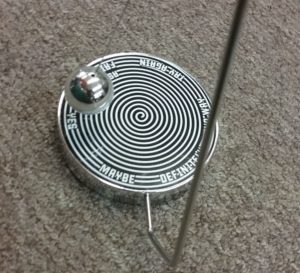 Divination: Tea Leaves, Entrails, & Hallucinogens, oh, my!
Divination: Tea Leaves, Entrails, & Hallucinogens, oh, my!
Here’s something fun I learned from writing Submerged Hopes, which contains a scene in which the hero offers to tell the fortune of the heroine, from reading the dregs of her coffee cup. Nick, who knows enough about the culture to seize the chance, tries his hand at tasseography, predicting she’ll fall for a man who just happens to look a lot like him.
The practice of divination dates from prehistoric times. In Greece, there were two broad classes of practitioners: the officially-sanctioned oracles, who were installed in a given location, who were supported by a priesthood and sacrifices by those who made pilgrimages to seek their advice, versus independent seers, who were be hired by an individual ruler or military campaign. Though divination was denounced by later religions and skeptics, it served as a way to give advice to state and military leaders, and as propaganda, to bolster confidence and support from the public as well as the superstitious soldiers under a general’s command.
Unsurprisingly, the hired seers were less likely to contradict a leader’s chosen route—or suggest they sacrifice their own child!—instead, offering prophecies that supported the leader’s decisions, though the prophet’s words were often ambiguous. Over 500 prophecies of the Pythi, the most famous oracles who served Apollo at Delphi, have survived the centuries.
There were several methods through which the prophecies were obtained. The two main categories were enthusiasm, or possession, in which the gods spoke through the ravings or dreams of the oracle (after a suitable sacrifice), or extispicy, the examination of the entrails (the meat being used for the priesthood later). The priestess at Delphi chewed bay (laurel) leaves or dipped their nails in laurel oil, drank water from a sacred stream, and sat on a tripod over a chasm which emitted toxic vapors, while another stood ready to take down her mind-altered speech. Even today, a common Greek idiom for “I have no idea” is, “Shall I smell my fingers?” which refers to the scent of the laurel oil which helped induce the prophetic trances so long ago.
Other forms of divination included cleromancy (the use of dice or lots, including astragalomancy, which involved carved sheep knucklebones), hydromancy (the use of water), pyromancy (the use of fire), thriai (the use of pebbles), and stikhomanteia (drawing slips out of a hat or opening a book to a random passage). Thus, it turns out I used stikhomanteia to choose the topic for one of my novels, when I had too many ideas I loved, all clamoring for attention!
On to tasseography! Nick used it with Greek coffee, but tea leaves or even wine dregs will work. To do a proper Greek coffee reading, one must obtain strong brew with thick dregs, preferably made in a long-handled pot called a briki. The fortune-seeker should enjoy the coffee while thinking about their questions or worries. When only the dregs remain, the fortune-teller takes the cup, and, holding the top tilted away to prevent splashing, rotates the cup three times clockwise to spread the sludge, dumps the excess out on the side with the handle, and sets it upside down on a napkin to drain for a few minutes.
The cup is then examined for shapes—animals, symbols, letters, landmarks—with an open mind. The bottom of the cup represents the past, the middle indicates the present, and the top portion shows what is to come. As in days of old, the predictions are open-ended and vague, which allows wiggle room as well as hope.
The surviving Delphic predictions are fascinating for anyone who loves history; I’ve included a link below.
Recent Comments